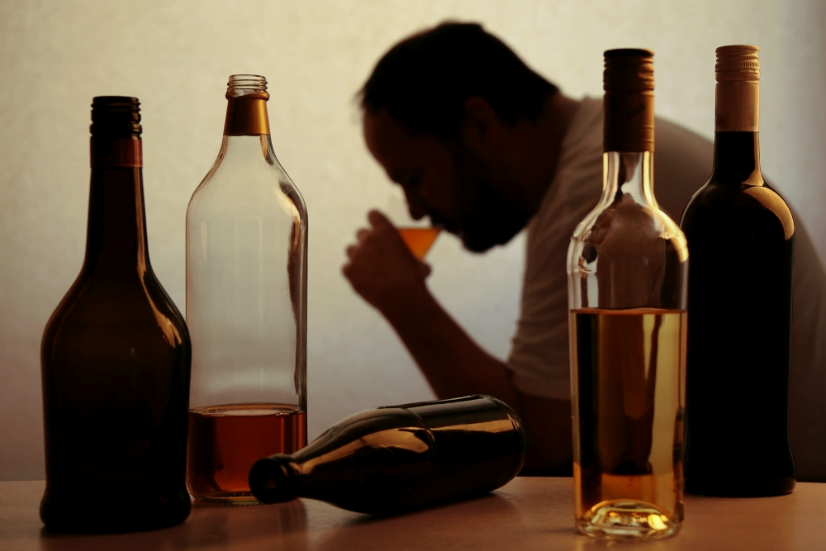Alcoholism is the third leading preventable cause of death in the United States. In fact, alcohol is the primary drug of choice in Texas. It’s no wonder there are so many drug and alcohol rehabs in Texas as Texas is second to Alaska in landmass. A little over half of all Americans 12 and older are current alcohol drinkers according to SAMHSA (Substance Abuse & Mental Health Services Administration).
Even if your struggle with alcoholism doesn’t lead to death, there are other damages it causes to both you and everyone around you.
You may be wondering what the treatment plan is like. While you may have heard of the 12-step program, you may not be familiar with what rehabilitation really means.
Without fully understanding the steps, the treatment may seem scarier to you than continuing to drink is. Keep reading to learn what the alcohol recovery stages are.
Help & Alcohol Recovery Phases
 There is more than one way to get help with stopping drinking. But no matter which treatment plan you choose, there are alcohol recovery stages to contend with.
There is more than one way to get help with stopping drinking. But no matter which treatment plan you choose, there are alcohol recovery stages to contend with.
The first stage is to realize and admit you need help. At this point, your addiction is so powerful, your life is probably unmanageable.
Asking for help has to come from within yourself. It can’t be your spouse, friend, or family member doing it for you. Otherwise, treatment won’t work.
Often people fool themselves into thinking they are fine and don’t need help. One way to determine if that’s really true is to write a record of how often you use alcohol.
Take a hard look at how your behavior when drinking has negatively impacted your life, career, and even your physical, emotional, and mental health. Then look at how your drinking as affected your loved ones.
Gather information about treatment for alcoholism and know where you can get support when you’re ready to commit to your recovery.
Support in Stages of Alcohol Recovery
Part of the 12-step program is believing that a Higher Power greater than us can help us recover our sanity. It’s time to turn over your will and life over to that Higher Power.
It’s also time to take a hard look at yourself and your behaviors. Without support, this can be an extremely difficult task.
Surround yourself with as much support as you can. Not only the support of friends and family but the support you will receive from trusted professionals will help make the alcohol recovery stages easier to get through.
For professional help, you can look to psychologists, doctors, counselors, religious organizations, support groups, and 12-step meetings. They can all help in different ways.
Using these services and relying on them for help will greatly improve your likelihood of success.
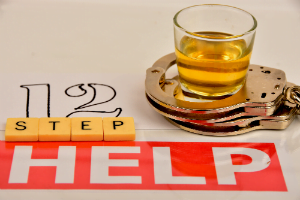 While it’s often difficult to ask for help, keep in mind that 23.5 million other Americans are struggling with alcohol addictions. You are not alone and you are not broken.
While it’s often difficult to ask for help, keep in mind that 23.5 million other Americans are struggling with alcohol addictions. You are not alone and you are not broken.
You simply need help and support that you haven’t been receiving up until now. You also deserve to receive that help.
The Receiving Therapy Stage in Alcoholic Treatment
One of the alcohol recovery stages that are extremely helpful is alcohol rehab. At this point, you’re looking to receive help from your defects of character.
That’s hard to do on your own. Most likely, you don’t even see the cycles of poor decisions and bad behavior that you’ve been stuck in. Licensed therapists can help you find your triggers and make adjustments to your patterns so that you can quit drinking for good.
They can also point out where you’ve harmed other people. Alcohol rehab will also arm you with useful tools when you’re ready to make amends to those whom you’ve harmed as a result of your drinking.
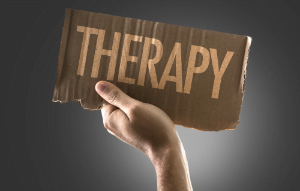 You’ll also learn life skills that will help you cope better with stressful situations. You’ll learn to recognize those situations and the cues that normally would lead you to start abusing again.
You’ll also learn life skills that will help you cope better with stressful situations. You’ll learn to recognize those situations and the cues that normally would lead you to start abusing again.
There are different types of therapies available. The trick is to find a drug rehab clinic that works for your specific requirements. Avoid drug rehabs that practice unethically with some due diligent research.
All Alcohol Recovery Stages Have Withdrawal Symptoms
A severe alcohol addiction brings with it dangerous alcohol withdrawal symptoms. Those symptoms can be mild to severe and include the following:
- Anxiety
- Shaky hands
- Headache
- Nausea
- Vomiting
- Insomnia
- Sweating
Symptoms can begin in as few as six hours from your last drink. Those with serious alcohol addictions can also experience hallucinations and seizures that can begin 12 hours after your last drink and last up to two days.
And 5% of serious drinkers will experience what’s known as the DTs (delirium tremens). The DTs start anywhere between 48 and 72 hours after your last drink. Symptoms include:
- Confusion
- Racing heart
- High blood pressure
- Fever
- Heavy sweating
Though not always needed, medication is used by some people during their initial alcohol recovery stages. Or perhaps even hospital inpatient treatment may be necessary. Medication can be useful for several reasons.
Medication can help manage your emotional and physical withdrawal symptoms. The medicine will also help your body adjust to life without alcohol.
Giving up drinking is a huge change and it’s extremely stressful for the person in recovery. 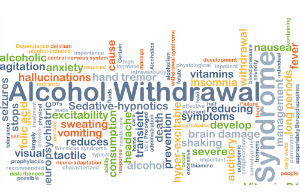 Medication can help reduce the stress triggers that usually lead to a relapse.
Medication can help reduce the stress triggers that usually lead to a relapse.
Lastly, often the root cause of someone’s drinking has to do with a personality or behavioral disorder such as depression. Using medication can help you manage your disorder.
Alcohol Recovery Relapse Stage
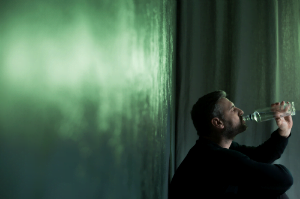 Unfortunately, relapsing is often one of the alcohol recovery stages. It’s easier to accept early on in your treatment that relapsing is a possibility.
Unfortunately, relapsing is often one of the alcohol recovery stages. It’s easier to accept early on in your treatment that relapsing is a possibility.
The key to success is to take immediate action when a relapse occurs so that you can get the help you need. The path toward a healthy and happy future isn’t clear-cut.
There will be a few bumps along the way. However, remember it took you a long time to get to the point where things were so bad that you needed help. It’s a mistake to think you’ll be able to clean up your mess quickly and easily.
If you do relapse, don’t beat yourself up about it or use it as an excuse to give up. Instead, use the experience to understand what triggered the relapse, to begin with.
Don’t Wait to Get Help for Alcoholism
If you think you have a problem with alcohol, start looking for help now. If you’re at rock bottom, it’s time to make a move.
Find an alcohol treatment center to help you start recovering from alcohol addiction. You deserve a life free from addiction and pain.
Contact us to find a location near you. (877) 322-2450

